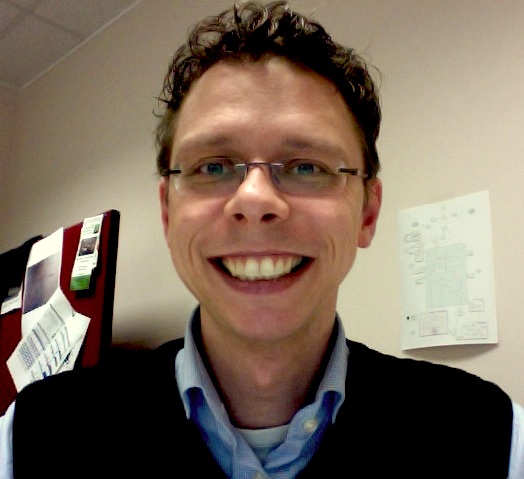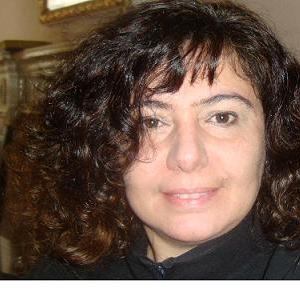
Important Information
Keynote speakers
Tutorials
Workshops
ACM style files
Currency converter
Weather report
Guidelines to obtain VISA
Travel information
Official airlines

Keynote speakers
Tutorials
Workshops
ACM style files
Currency converter
Weather report
Guidelines to obtain VISA
Travel information
Official airlines


Tutorials
The
tutorial gives an introduction how to use Linked Open Data (LOD) from
within Web applications. We start with simple access methods
(follow-your-nose, dumps) over querying LOD data using SPARQL to
client-side access in the browser (using JavaScript) to integration in
popular CMS such as Drupal.
Presenter: Michael Hausenblas, LiDRC - Linked Data Research Centre, DERI, Ireland
 |
Michael is Research
Fellow at DERI, NUI Galway where he is coordinating the Linked Data
Research Centre. He focuses on Linked Data discovery, Dataset Dynamics,
the write-enabled Linked Data Web, as well as application domains
including Linked Government Data. Michael has been contributing to the
W3C SWEO Linking Open Data project since mid 2007 and is currently the
co-ordinator of the FP7 European Commission Support Action LOD Around
The Clock (LATC). He has published over 45 papers at conferences,
workshops and in journals and served on over 40 Programme Committees in
various conferences and workshops as well as contributed to Web
standards, including the RDFa standardisation in W3C, in the W3C Media
Fragments Working Group and currently acting as a co-chair of the W3C
RDB2DF Working Group. |
Tutorial 2: Description Logic Reasoning for Semantic Web Ontologies
Description Logics
are a successful family of logic-based knowledge representation
formalisms, which can be used to represent the conceptual knowledge of an
application domain in a structured and formally well-understood way.
Based on their formal semantics a number of powerful DL
reasoning services have been defined and implemented in reasoning systems.
Ontology languages for the emerging Semantic Web such as the OWL dialects have greatly increased interest in DLs and related reasoning services in recent years, since these ontology languages are based on DLs. Our tutorial gives an introduction to the basic principles underlying knowledge representation and reasoning with Description Logics. The main focus of the course is on those DLs that form the core of the OWL dialects and the reasoning services they are tailored for.
Ontology languages for the emerging Semantic Web such as the OWL dialects have greatly increased interest in DLs and related reasoning services in recent years, since these ontology languages are based on DLs. Our tutorial gives an introduction to the basic principles underlying knowledge representation and reasoning with Description Logics. The main focus of the course is on those DLs that form the core of the OWL dialects and the reasoning services they are tailored for.
Presenter: Anni-Yasmin Turhan, Dresden University of Technology, Germany
 |
Anni-Yasmin Turhan is
a post-doctoral research and teaching fellow at TU Dresden, where she
teaches courses on advanced topics in Description Logics. In 2007 she
received her Ph.D. for her thesis on non-standard inferences in
Description Logics from TU Dresden. Her research interests include inferences
for computing generalizations in DLs and employing DL inferences for
context-aware systems.
Anni participated in several national and European research projects and was key researcher in industry funded research projects. She was the PC member for international conferences in the field of Artificial Intelligence and Semantic Web (AAAI'10, ISWC'09, ECAI'10, IJCAI'11) and she was the PC co-chair of international workshops on Knowledge Representation (DL'07, UniDL'10). |
Tutorial 3: Just Enough Ontology Engineering
Advanced functionalities of modern IT systems such as the Semantic Web and Web 2.0 tools and environments leverage knowledge represented via natural languages;therefore, their symbols and meanings (semiotics and semantics) need to be captured and represented adequately for these systems to be effective. Ontologies,the conceptual and semantic models of reality that can be used both by humans and machines to capture this information, have become popular artifacts widely used in systems engineering. Ontology engineering(OE) or ontology development activities can be carried out with varying degrees of refinement and complexity, but they are never trivial for reasons discussed in the proposed tutorial.
- JEOE contributes a systemic methodology and implementation independent approach to ontology building
- it combines elements of systems developement principles with ontology
- developement methodologies
- it helps to get around many of the stumbling blocks that often bring ontology development to a standstill
- it provides an opportunity to verify, refresh, complement update and share whatever ontology development knowledge one holds
 |
Paola
Di
Maio early background as a multilingual London based Science and
Technology Correspondent, and observed first hand the widespread
adverse impact of systemic flaws in information management
practice. She holds an MSc in Information Systems, and
works as a researcher and lecturer, has a strong interest on
sustainability and participatory approaches. She contributes to several
scientific and technical workgroups, is a member of INCOSE, publishes
regularly for Cutter.com, and places her hopes for a better future
heavily on the web. |
ORGANISED BY
Proceedings will be published by
International Journal of Metadata, Semantics and Ontologies
International Journal of Web Services Practices
International Journal of Information Retrieval Research
International Journal of Computer Science & Applications
Some selected extended papers from WIMS'11 will be considered for Elsevier (Morgan Kaufmann) book [pending approval]

This
website
is
licensed
under
a Creative Commons
Attribution-Share Alike 3.0 License.

Proceedings will be published by
Selected papers from WIMS'11,
after further revisions, will be published in the special issues of the
following journals.
International Journal of Metadata, Semantics and Ontologies
International Journal of Web Services Practices
International Journal of Information Retrieval Research
International Journal of Computer Science & Applications
Some selected extended papers from WIMS'11 will be considered for Elsevier (Morgan Kaufmann) book [pending approval]






